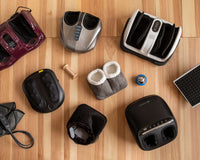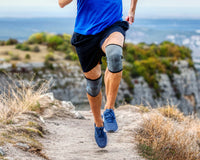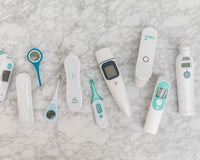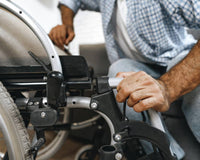As the back-to-school season approaches, students across various disciplines are gearing up for a new academic year. For those pursuing medical studies or healthcare-related fields, being well-equipped with the right tools and medical equipment is crucial. In this blog, we'll explore the importance of having the right medical equipment for a successful and productive school year.
-
Preparedness for Practical Training: Medical students often engage in hands-on practical training as part of their curriculum. From nursing students practicing clinical procedures to aspiring doctors learning diagnostic skills, having access to essential medical equipment is essential. Back to school means back to the lab, and having the right equipment ensures students can practice and hone their skills effectively.
-
Quality of Learning: The quality of education in healthcare-related fields is heavily dependent on the practical experiences students receive. Access to medical equipment allows students to bridge the gap between theoretical knowledge and real-world application. Learning to use diagnostic tools, surgical instruments, and other equipment helps students gain a deeper understanding of their future profession.
-
Gaining Confidence: Using medical equipment in a controlled educational setting builds students' confidence in their abilities. Familiarity with equipment, such as stethoscopes, blood pressure monitors, and diagnostic kits, instills a sense of competence that will serve them well in their future careers. Feeling comfortable with these tools prepares students to handle complex situations with poise and accuracy.
-
Staying Updated with Advancements: The medical field is constantly evolving with new technologies and advancements. By being equipped with the latest medical equipment, students can stay current with industry trends. Learning to use state-of-the-art equipment during their academic journey prepares them to adapt and embrace technological innovations in their professional practice.
-
Collaborative Learning: Medical education often involves group activities and collaborative learning experiences. Having access to medical equipment facilitates teamwork and interactive learning. Students can engage in simulated scenarios, role-playing, and case studies that enhance their problem-solving skills while working with their peers.
-
Transition to Clinical Practice: Ultimately, the goal of medical education is to prepare students for real-world clinical practice. Having a solid foundation in using medical equipment gives students a head start in their internships and residencies. They can seamlessly transition into clinical settings, contributing to patient care with confidence and proficiency.
Conclusion: As students in medical fields gear up to head back to school, the importance of having the right medical equipment cannot be overstated. From building practical skills to fostering confidence and staying updated with advancements, being well-equipped sets the stage for a successful academic journey and a future career in healthcare. With the right tools in hand, students can embrace the challenges and opportunities that come their way, knowing they are prepared to make a meaningful impact in the medical field.






